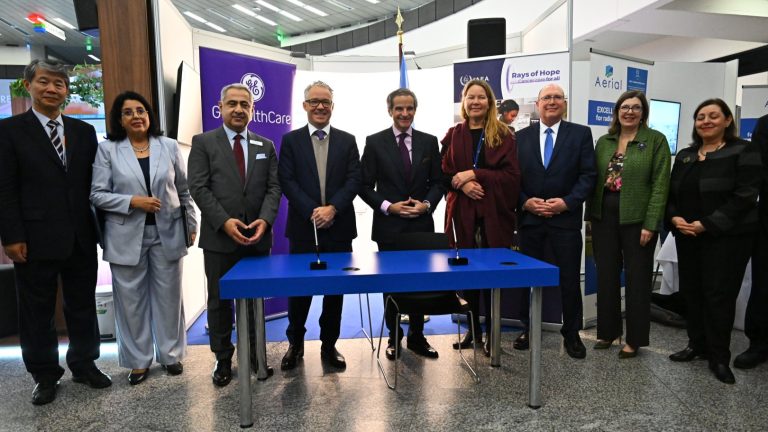As part of its ongoing collaboration with industry partners under the “A Beacon of Hope: Cancer Care for All” initiative, which aims to reduce global disparities in cancer treatment, the IAEA and GE Healthcare. Under the agreement, Elekta will donate brachytherapy applicators and GE Healthcare will supply mammography equipment. The equipment will increase training and research opportunities for countries around the world at the IAEA Dosimetry Laboratory in Seibersdorf, Austria.
“We are very grateful. Dosimetry is essential and must be made available to facilities, institutions, medical centers and teams around the world,” IAEA Director General Rafael Mariano Grossi said at this week's Nuclear Energy Conference. The statement was made at the signing ceremony held on the sidelines of the Ministerial Conference on Science, Technology and Nuclear Energy. Application and technical cooperation program.
Support from industry partners such as Elekta and GE Healthcare will help address global inequalities in the diagnosis and treatment of cancer, especially for women. Women in high-income countries have a breast cancer survival rate of over 90 percent, but women in low- and middle-income countries are twice as likely to die from breast cancer. We also face higher rates of cervical cancer incidence and mortality. Cervical cancer is a preventable and treatable disease if detected and treated early.
Elekta's applicator and treatment planning system supports the IAEA's ongoing research into dosimetry for brachytherapy, a type of internal radiotherapy that targets tumor sites directly. “We are very proud to partner with the IAEA on the Beacon of Hope framework. We are here to confirm concrete actions to deliver cancer care and close gaps around the world. ,” Elekta Chief Commercial Officer Habib Nehme said at the event, highlighting the important role of brachytherapy in eliminating cervical cancer.
GE Healthcare's digital mammography system supports quality assurance training and dosimetry research. Designed to improve early detection of tumors and other abnormalities in breast tissue, this imaging system allows medical professionals to identify cancer at an earlier, more treatable stage. “Our mission is to create a world without limits in healthcare, but we can't do it alone. We need strong partners,” said President of Imaging at GE Healthcare. said Roland Lott, CEO and CEO. “We believe that the IAEA is such a partner, especially in promoting the safe use of these equipment, and we are very proud to be here today.”
This donation is made under agreements signed between the IAEA and Elekta in 2023 and with GE Healthcare in 2022 and 2023.
Since its establishment in 1961, the IAEA Dosimetry Laboratory has played a central role in guiding the medical use of radiation in member countries. From calibration and auditing services to medical physics research to support clinical development and innovation, we help patients around the world receive quality cancer care. As the central laboratory of the network of Secondary Standard Dosimetry Laboratories (SSDL) operated jointly by the IAEA and the World Health Organization since 1976, the Dosimetry Laboratory calibrates SSDL reference standards worldwide and SSDL reference standards are then used to calibrate medical devices. End users such as hospitals and regulatory authorities.
As the world is expected to face a significant increase in cancer cases in the coming decades, the demand for the laboratory's vital services will only increase. Particularly in low- and middle-income countries, an increase in the number of skilled professionals such as radiation oncologists, imaging specialists, radiation therapists, and medical physicists will be needed.
A recent report from the IAEA-led Lancet Oncology Committee found that the current radiology workforce will need to expand by more than 60 percent to cope with the expected surge in new cancer cases by 2050. pointed out.
In February 2022, the IAEA launched the “Light of Hope” initiative to accelerate efforts to close the cancer treatment gap. To date, more than 90 countries have registered to participate, nearly a dozen cancer facilities have joined as Rays of Hope anchor centres, and more than €80 million has been raised in support of the initiative.

